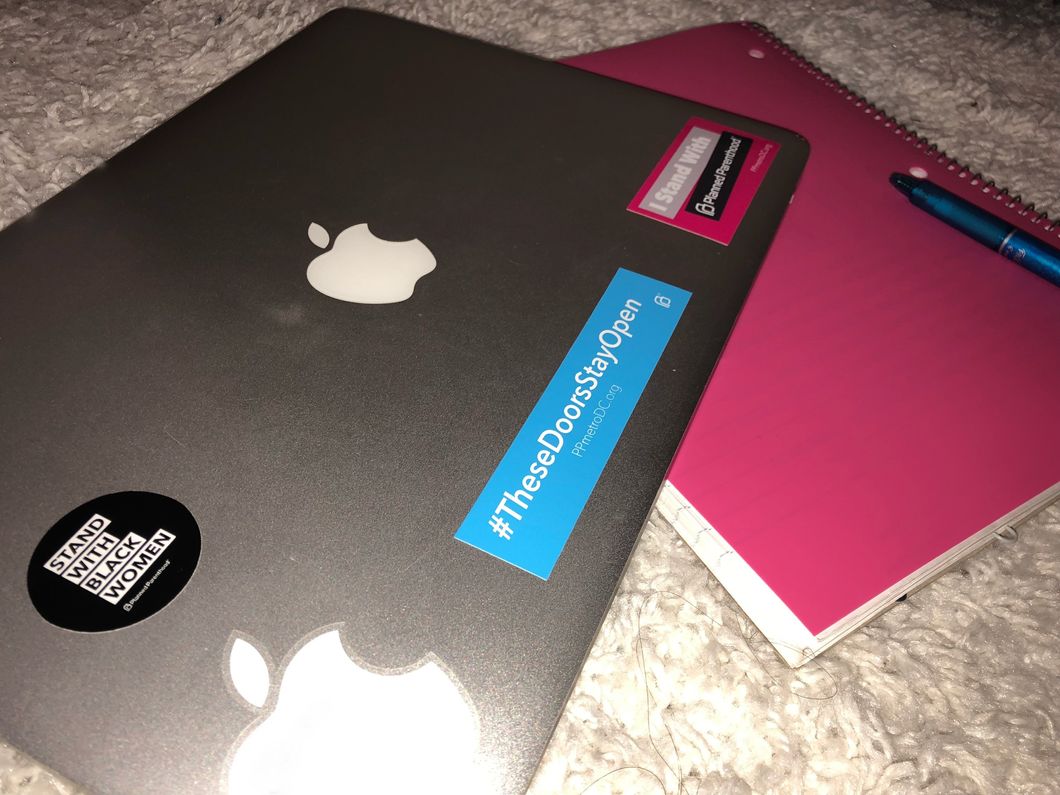For being so expensive, college is surprisingly full of opportunities to collect free stuff.
I've seen at least one informational table equipped with free goodies every day that I've been on campus. Sometimes—if you're lucky—they've got candy or inscribed pens, but most of the time you'll walk away from them carrying business cards and some kind of sticker or button with their organization's slogan on it.
The increasing availability of cheap stickers and buttons has resulted in an uptick in their popularity as accessories. Using the back of your laptop—or any other flat surface, really—to laud political parties and non-profit causes is now a commonplace trend.
I've fallen prey to the flashy allure of accessory culture myself: a few glossy stickers on the back of my laptop, their pink-and-black text proclaiming things like 'stand with black women' and '#Thesedoorsstayopen,' reveal me to be a fierce supporter of Planned Parenthood.
But for all the stickers I've carefully pasted on my belongings, have I actually done anything to support the organizations that produce them? Have I volunteered my time, effort, money or energy to participate in physical activism for the causes I champion?
My answer to that question, for now, is no. I haven't yet volunteered at Planned Parenthood or donated much money to the organization…but at least the sticker looks cool, right?
Stickers and buttons have made it easy to participate in what I call 'feel-good activism,' wherein simply displaying pretty accessories emblazoned with hashtags and slogans are enough to satisfy people that they're doing their part in furthering today's serious social movements.
While feel-good activism allows more people to become burgeoning activists, it also enables a culture that superficially supports social movements. After all, if you feel like you've done your part in creating change when you display a "#BlackLivesMatter" pin on your backpack, there's very little incentive for you to do any more.
The truth is, social movements don't engender progress unless they're backed by a community both interested in and committed to their advancement. That pin on your backpack is great for displaying your values and beliefs, or even starting conversations, but it's a poor substitute for the kind of active participation needed to actually enact social change.
Stickers and pins aren't inherently a bad thing. Displaying accessories can be a great way to start conversations about political involvement, or spread the word about social movements. But picking up trendy free buttons to fit an aesthetic goal isn't a substitute for actual activism, and shouldn't be regarded as such.
















